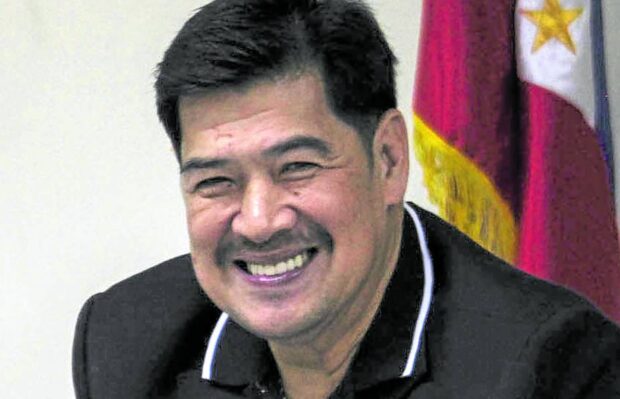Diño, who helped pave way for Duterte presidency, dies at 66
MANILA, Philippines — Former Interior Undersecretary Martin Diño, who gave way to then Davao City Mayor Rodrigo Duterte as the Partido Demokratiko Pilipino-Lakas ng Bayan’s (PDP-Laban) presidential candidate in 2016, died on Tuesday at the age of 66.
“He suffered from acute respiratory failure and has been battling stage 4 lung cancer for more than a year,” his daughter Liza Diño-Seguerra said in a statement.
Seguerra said her father, who just marked his birthday on July 25, died peacefully at 2:15 a.m. while surrounded by his family, who described him as “not only a dedicated public servant but also a loving husband, father, brother, and friend.”
“His contributions to our nation’s progress, particularly on local governance and barangay development, will forever stand as a testament to his commitment to a better society,” they said in a statement.
In what was believed to be a last-ditch effort to field Duterte in the 2016 elections, Diño, a former barangay captain and Volunteers Against Crime and Corruption chair, filed his certificate of candidacy (COC) for president under PDP-Laban just minutes before the Oct. 16, 2015 deadline. However, he indicated in his COC that he was running for Pasay mayor.
Article continues after this advertisementBefore the Commission on Elections could declare him a nuisance candidate, he withdrew his candidacy, allowing Duterte to substitute and eventually be elected as president.
Article continues after this advertisementDuterte reportedly appointed Diño as chair of the Subic Bay Maritime Authority on Sept. 23, 2016, as a reward for being a placeholder.
In 2018, he was appointed undersecretary for barangay affairs of the Department of the Interior and Local Government.
Before his stint in the national government, Diño served as chair of Barangay San Antonio in Quezon City for 13 years. He gained fame in the 1990s when he took up the cause of the 10-year-old rape victim of Leo Echegaray, the first Filipino to be executed by lethal injection after the reinstatement of the death penalty in 1993.
